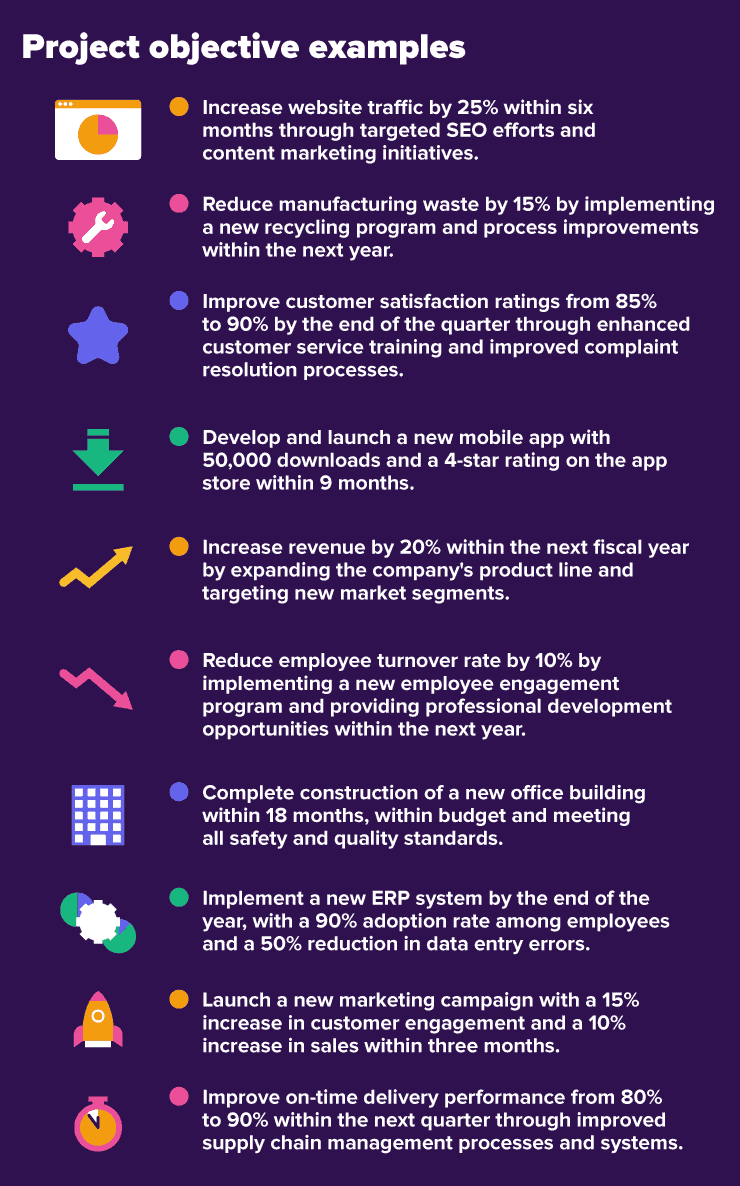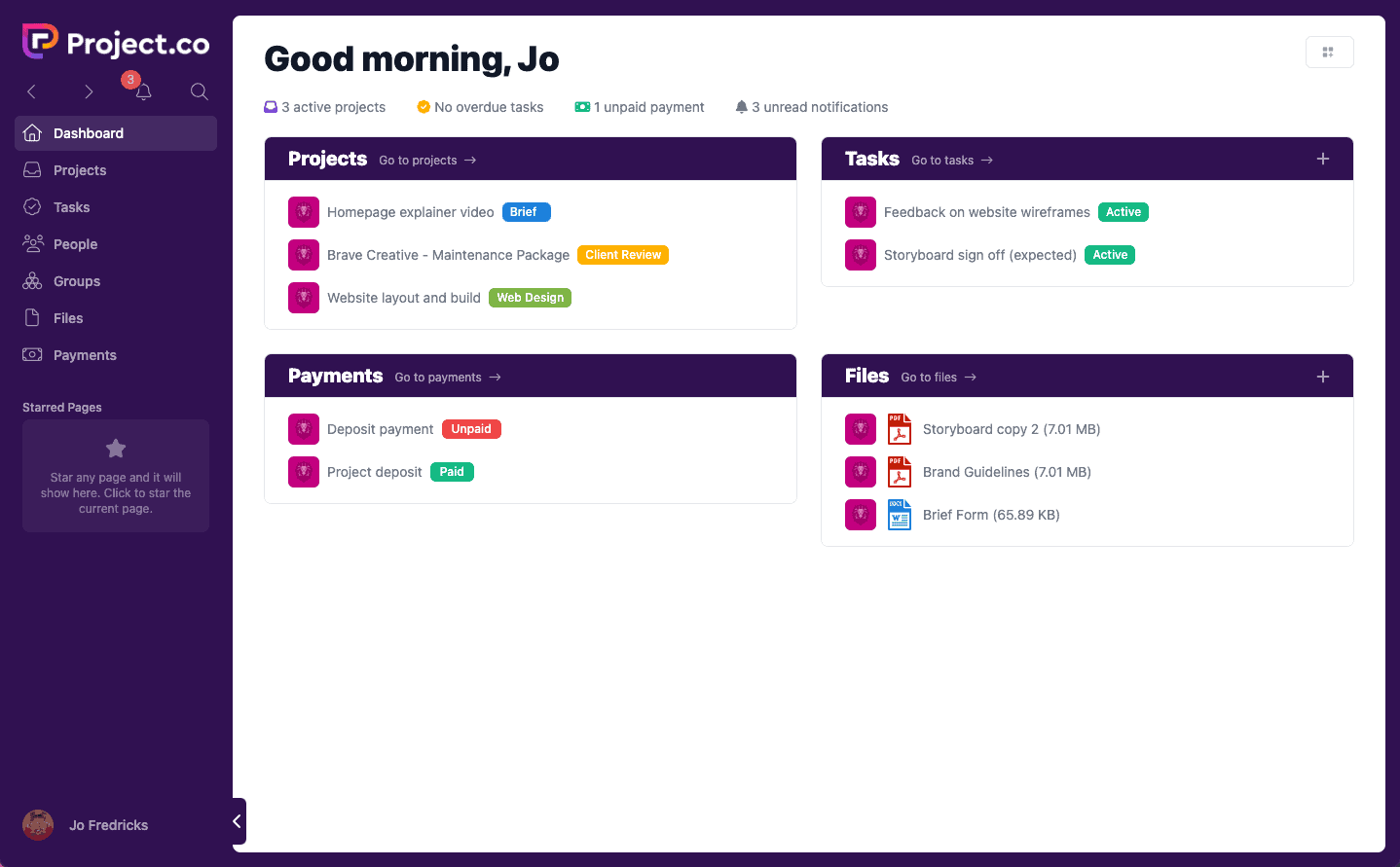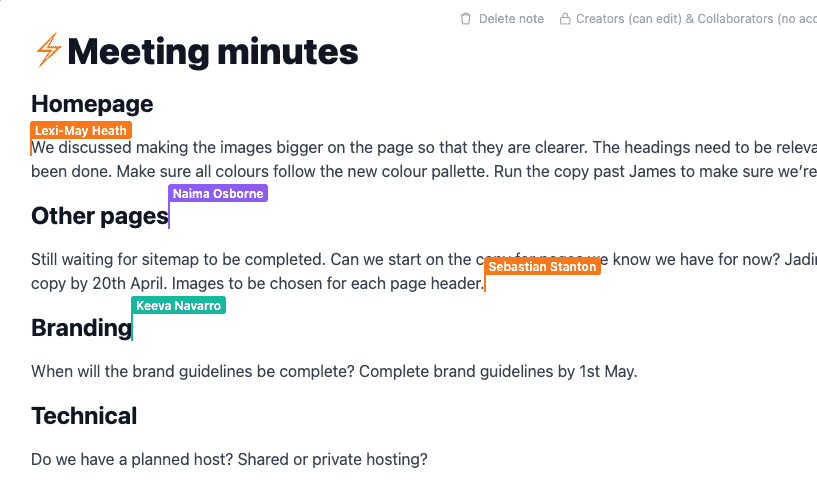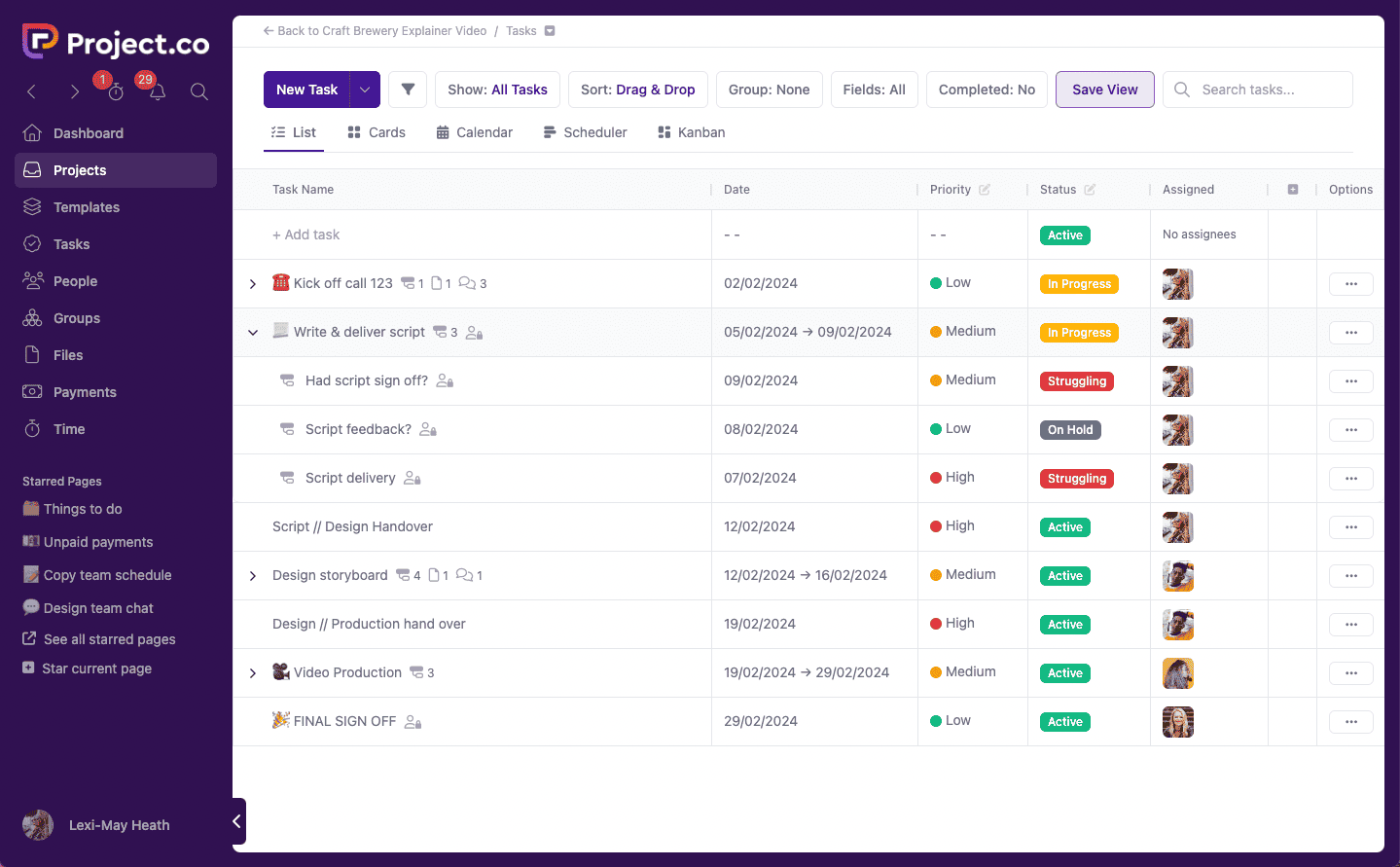In any project, whether it’s a small personal project or a large-scale business project, having clear objectives is crucial for success.
Project objectives define the goals and outcomes that the project aims to achieve, providing a roadmap for all the tasks, decisions, and resources needed to complete the project.
In this article we’ll explore what project objectives are, why they are important, and how to write them effectively.
What are project objectives?
Project objectives refer to specific, measurable, achievable, relevant, and time-bound goals that a project aims to achieve.

They should be aligned with the overall business strategy and goals, should be realistic and achievable and should take into account constraints such as budget, time, and resources.
Project objectives serve as a basis for measuring the project’s progress and success, and they enable you to monitor and evaluate the project.
Project objectives can include deliverables to help to clarify the specific outcomes that the project is expected to produce.
For example, a project objective might be to:
With the deliverable here being a functional website for your company. By including the deliverable in the project objective, the project team can ensure that they are clear on what is expected of them and can work towards specific, measurable outcomes.
However, it’s important that project objectives don’t solely focus on deliverables. Project objectives should strike a balance between deliverables and broader project outcomes such as customer satisfaction, business value, or social impact, depending on the nature of the project and its goals.
Why project objectives are important
Writing project objectives may seem like extra admin you could do without, but they are important for several reasons:
- Provide clarity and focus
Project objectives provide a clear direction for all the tasks, activities, and resources needed to complete the project successfully.
- Measure progress and success
Project objectives serve as a basis for measuring the project’s progress and success, both during and after the project, so you can make informed decisions and adjustments as necessary.
- Facilitate communication and collaboration
Project objectives help to facilitate communication and collaboration among team members and ensure that everyone is working towards the same goals.
- Increase accountability and ownership
By setting clear and specific objectives, project teams can establish accountability and ownership for specific tasks and activities.
- Improve decision-making
By aligning decisions with the project objectives, project teams can ensure that they are making decisions that contribute to the project’s overall success.
Project objectives vs. project goals
There’s a difference between project objectives and project goals, although the two terms are sometimes used interchangeably.
Objectives are more focused and concrete than goals and are often used to guide the planning and execution of a project.
Project goals, on the other hand, are broader and more general statements that describe the overall purpose and direction of a project.
Goals are typically less specific than objectives and may not be as quantifiable or time-bound.
Using the same example as earlier around developing a company website, the project goal would be:
Whereas the project objectives to meet this goal would be:
“Create a website homepage”
“Design website branding”
Put simply, project objectives are the stepping stones you take in order to realise your project goals.
Project objective examples
Here are some examples of project objectives across a wide range of industries and use cases:

These objectives follow the SMART system, and they provide a clear direction for the project team to work towards.
How to write project objectives
Here are some steps you can follow to write effective project objectives:
- Define the goal
Start by defining the overall goal of the project. What do you want to achieve? What is the purpose of the project?
- Identify key team members
Identify the team who will be involved in the project and involved in achieving the objectives.
- Brainstorm
Brainstorm a list of objectives that are specific, measurable, achievable, relevant, and time-bound. Consider what specific outcomes or results you want to achieve, and how you will measure progress towards these objectives.
- Prioritise
Review the list of objectives and prioritise them based on their importance, feasibility, and alignment with the project goal
- Refine
Refine the objectives to ensure that they are clearly defined and achievable.
- Monitor and adjust
Once the project is underway, monitor progress towards the objectives and make adjustments as needed. Celebrate successes and address any obstacles or challenges that arise.
How Project.co can help
Project.co can help with project objectives in several ways:
- Centralised project planning
Project.co provides a centralised platform for project planning, which makes it easier to define and track project objectives. You can create and assign tasks, set deadlines, and track progress towards objectives all in one place.

- Collaborative team management
Project.co allows you to collaborate with your team members in real-time. This can help to ensure that everyone is aligned with the project objectives and working towards the same goals.

- Task management and tracking
With Project.co, you can create and assign tasks that are directly tied to your project objectives. This makes it easier to track progress towards objectives and identify any issues or delays that may arise.

- Notifications
Project.co platform notifications ensure timely updates, fostering collaboration, accountability, and transparency. They keep users informed about milestones, tasks, and discussions, enabling efficient project management and helping achieve objectives effectively.
Project.co can help you to define, track, and achieve your project objectives more efficiently and effectively and can help to ensure that your project is completed on time, within budget, and with the desired outcomes and results.
Final thoughts
In conclusion, project objectives are crucial for the success of any project. They define the goals and outcomes a project aims to achieve and also provide a roadmap for all the tasks, decisions, and resources needed to complete the project.
Writing effective project objectives can be challenging, but it is essential to ensure that the project team stays focused, motivated, and aligned with the project’s goals.
For more ways to keep your projects on track, check out: 5 project management best practices to help you win!


